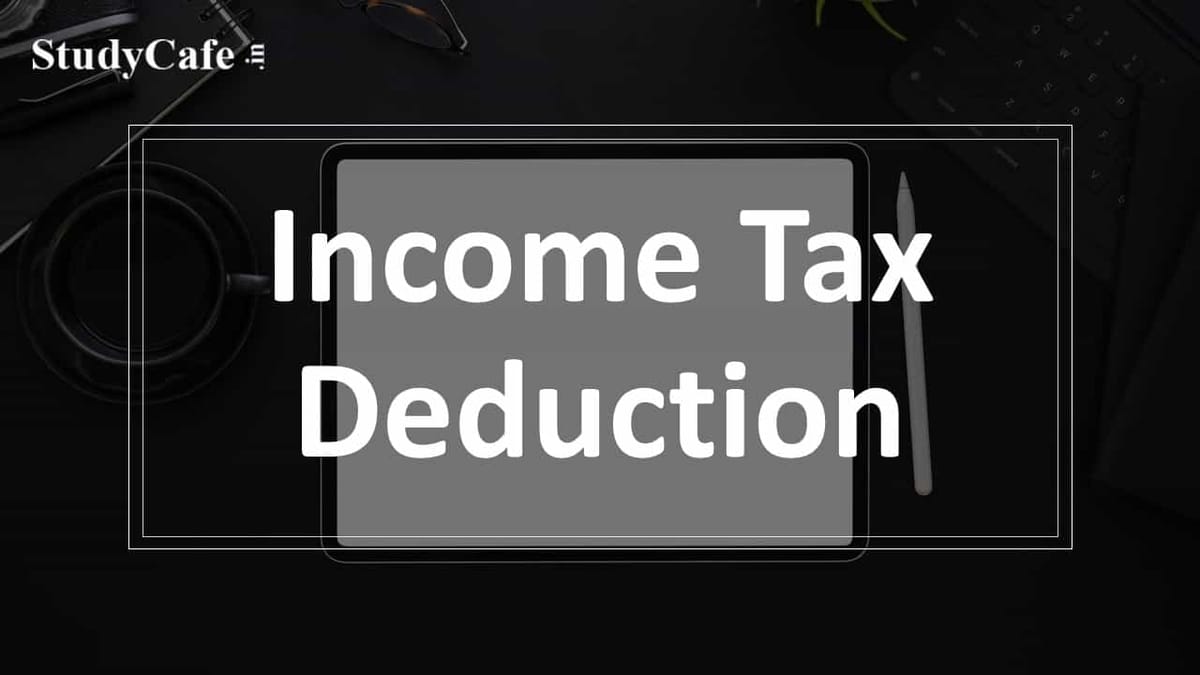Claiming deductions under sections 80C to 80U while filing ITR
Deepshikha | Nov 1, 2021 |

The income tax department has provided numerous deductions from taxable income under chapter VI A deductions to encourage taxpayers to save and invest. Although the 80C deduction is the most well-known, there are additional tax deductions that can help people decrease their tax bills. Let’s take a closer look at these deductions.
Section 80C is one of the most well-known and popular sections among taxpayers since it allows them to lower their taxable income by making tax-saving investments or incurring qualified costs. It provides a maximum deduction of Rs 1.5 lakh from the total income of the taxpayer each year.
Individuals and HUFs can both take advantage of this discount. This deduction is not available to corporations, partnership firms, or LLPs.
Subsections 80CCC, 80CCD (1), 80CCD (1b), and 80CCD (2) are all found in section 80C.
It’s worth noting that the overall ceiling for claiming deductions, including subsections, is Rs 1.5 lakh, with an extra deduction of Rs 50,000 allowed under section 80CCD (1b).
PPF, EPF, LIC premium, Equity-linked saving scheme, principal amount payment towards home loan, stamp duty and registration charges for property purchase, Sukanya Smriddhi Yojana (SSY), National saving certificate (NSC), Senior citizen savings scheme (SCSS), ULIP, tax saving FD for 5 years, Infrastructure bonds, etc. are all eligible for deduction under section 80C.
Payments to annuity pension schemes can be deducted under Section 80CCC. The annuity pension or amount received upon surrender of the annuity is taxable in the year of receipt, including any interest or bonus accrued on the annuity.
Contribution by employees under section 80CCD (1). The following are the maximum deductions that can be made:
For money placed in an NPS account, an additional deduction of Rs 50,000 is allowed.
Contributions to the Atal Pension Yojana are also deductible.
Under this clause, employers can remove up to 10% of their basic wage plus dearness allowance as a contribution. Only salaried employees are eligible for this benefit; self-employed individuals are not.
You can deduct up to Rs 10,000 from your interest income from a bank, co-operative society, or post office savings account if you are an individual or a HUF. Other sources of income should include interest from a savings account.
Fixed deposit, recurring deposit, and corporate bond interest income are not eligible for the Section 80TTA deduction.
Individuals are eligible for a tax deduction for interest paid on student loans used to further their education. This loan could have been taken for the taxpayer, his or her spouse or children, or for a student who is under the taxpayer’s legal custody.
The 80E deduction is available for up to 8 years (beginning with the year in which the interest starts to be returned) or until the entire amount of interest is repaid, whichever comes first. The total amount that can be claimed is limitless.
FY 2017-18 and FY 2016-17
This deduction is allowed in FY 2017-18 if the loan was obtained in FY 2016-17. The deduction under section 80EE is only available to homeowners (individuals) who have just one house property on the date of loan sanction. The property must be under Rs 50 lakh in value, and the mortgage must be under Rs 35 lakh. The loan must have been approved by a financial institution between April 1, 2016, and March 31, 2017. You can deduct an additional Rs 50,000 on your home loan interest on top of the Rs 2 lakh deduction permitted under section 24 (on the interest component of your EMI).
FY 2013-14 and FY 2014-15
Throughout these financial years, the deduction allowed under this clause was for a first-time residence worth less than Rs 40 lakh. This is only available if your current loan balance is less than Rs 25 lakh. Between April 1st and March 31st, 2014, the loan must be approved. For the fiscal years 2013-14 and 2014-15, the total deduction allowed under this clause is Rs 1 lakh.
Under section 80D, you (as an individual or a HUF) can deduct Rs.25,000 for insurance for yourself, your spouse, and your dependant children. You can get a Rs 25,000 additional deduction for your parents’ insurance if they are under 60 years old. The deduction amount is Rs 50,000 if both parents are above 60 years old, up from Rs 30,000 in Budget 2018.
If both the taxpayer and the parent(s) are 60 years old or older, the maximum deduction allowed under this section is Rs.1 lakh.
The Section 80DD deduction can be used by a resident individual or a HUF.
To claim this deduction, you’ll need a certificate of disability from a recognized medical authority. From FY 2015-16, the Rs 50,000 deduction limit has been increased to Rs 75,000, and the Rs 1,000,000 deduction limit has been increased to Rs 1,25,000.
Remember that to claim such a deduction, you must obtain a prescription for such medical treatment from the concerned doctor.
A resident who suffers from a physical impairment (including blindness) or mental retardation is eligible for an Rs.75,000 discount. In the event of a substantial handicap, a discount of Rs 1,25,000 might be claimed.
The Section 80U deduction limit of Rs 50,000 has been increased to Rs 75,000, and the ceiling of Rs 1,00,000 has been increased to Rs 1,25,000, effective in FY 2015-16.
In case of any Doubt regarding Membership you can mail us at [email protected]
Join Studycafe's WhatsApp Group or Telegram Channel for Latest Updates on Government Job, Sarkari Naukri, Private Jobs, Income Tax, GST, Companies Act, Judgements and CA, CS, ICWA, and MUCH MORE!"